Three fires
Incident 1: Property damage
A vessel was carrying two (working and loaded) deep freezers as deck cargo, destined for delivery to a platform. They were stored inside two metal baskets. A small fire/smoke was observed coming from one of the deep freezers.
The fire alarm was sounded. All crew mustered, initiated fire-fighting actions, isolated the electrical supply to the deep freezers, and put out the fire using a fire extinguisher. The client was informed.
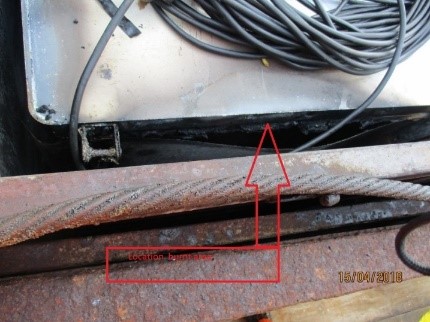
What went wrong? What were the causes?
- The deep freezers were old and showed visible signs of lack of maintenance;
- Even the metal baskets did not have any wire mesh to promote air circulation;
- May have been due to over-heating due to poor air circulation between compressor and body of the metal basket.
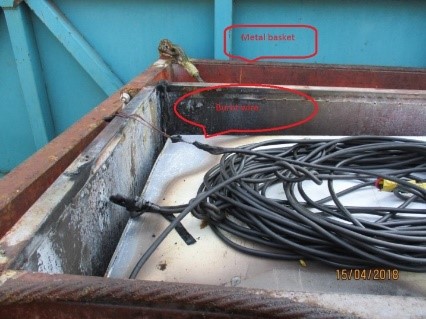
What lessons were learned?
The deep freezers should have been placed so as to allow for adequate air circulation during transit.
Incident 2: Overheated Lead-acid batteries
Batteries for a remote valve control system were found overheated in an instrument room.
The batteries were Immediately isolated, and the side covers of the battery bank opened. One bank of batteries had heated up and started smouldering.
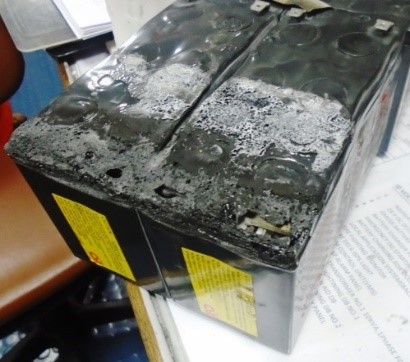
What went wrong? What were the causes?
- Ventilation to the room was inadequate;
- There was no regular or adequate inspection of the batteries.
What actions were taken? What lessons were learned?
- The undamaged batteries were checked and found satisfactory. All clips on connectors were also checked for its tightness. Batteries of the affected bank were replaced;
- Advice was sought from the manufacturer;
- Inspection of these batteries to be part of planned maintenance system (PMS).
Incident 3: Property damage: minor fire in UPS
A fire alarm went off and smoke was discovered coming from a UPS (uninterruptable power supply) room supplying power to remote valves. The UPS was isolated from the main supply and the battery bank was isolated. A portable CO2 extinguisher was used on the UPS to prevent the possibility of fire. The vessel had to be removed for a time from location near a rig.
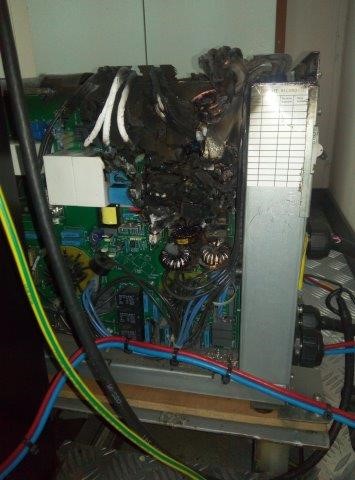
Operational guidelines for the equipment had not been followed. Planned maintenance procedures and manufacturer’s instructions for maintenance of UPS should be followed at all times. The immediate cause of the incident in this case was wear and tear.
The risk of there being no UPS backup for the cargo valve control system, as a result of this kind of occurrence, should be taken into account.
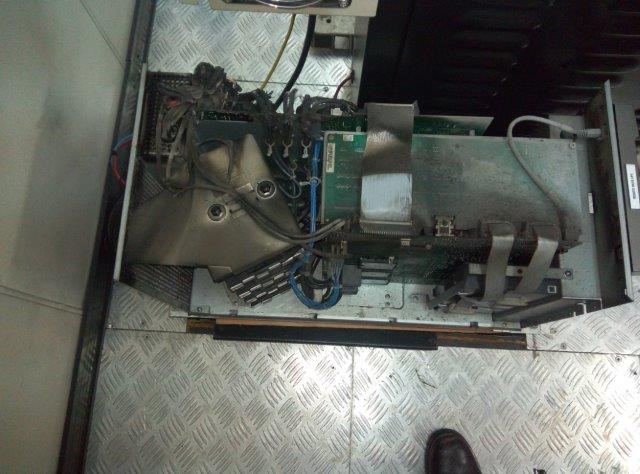
A common theme in these four fires is overheating; though batteries and ventilation may also prove to be useful ‘search words’ when looking for similar incidents.
Members may wish to look at the following incidents:
- Fire in vessel accommodation – Overheating notebook computer
- Diver helmet hat light[overheated owing to lack of cooling]
- Mobile phone charger failures
Safety Event
Published: 9 July 2018
Download: IMCA SF 14/18
IMCA Safety Flashes
Submit a Report
IMCA Safety Flashes summarise key safety matters and incidents, allowing lessons to be more easily learnt for the benefit of all. The effectiveness of the IMCA Safety Flash system depends on Members sharing information and so avoiding repeat incidents. Please consider adding safetyreports@imca-int.com to your internal distribution list for safety alerts or manually submitting information on incidents you consider may be relevant. All information is anonymised or sanitised, as appropriate.
IMCA’s store terms and conditions (https://www.imca-int.com/legal-notices/terms/) apply to all downloads from IMCA’s website, including this document.
IMCA makes every effort to ensure the accuracy and reliability of the data contained in the documents it publishes, but IMCA shall not be liable for any guidance and/or recommendation and/or statement herein contained. The information contained in this document does not fulfil or replace any individual’s or Member's legal, regulatory or other duties or obligations in respect of their operations. Individuals and Members remain solely responsible for the safe, lawful and proper conduct of their operations.
